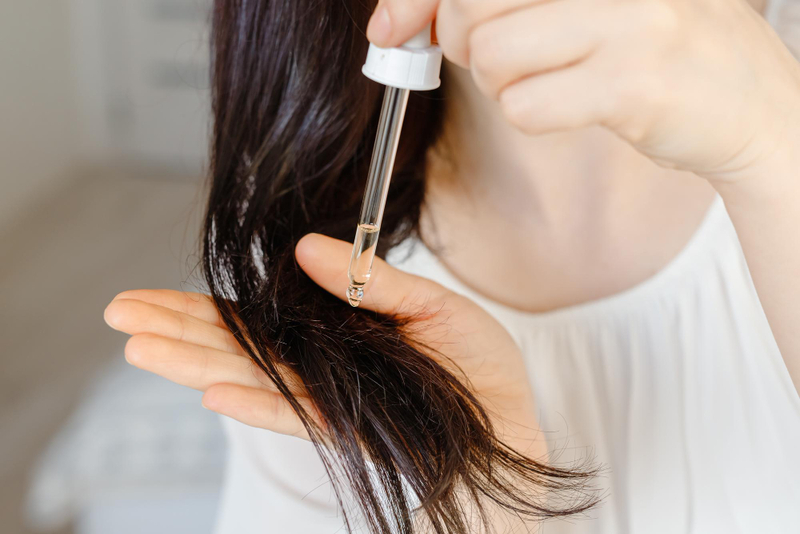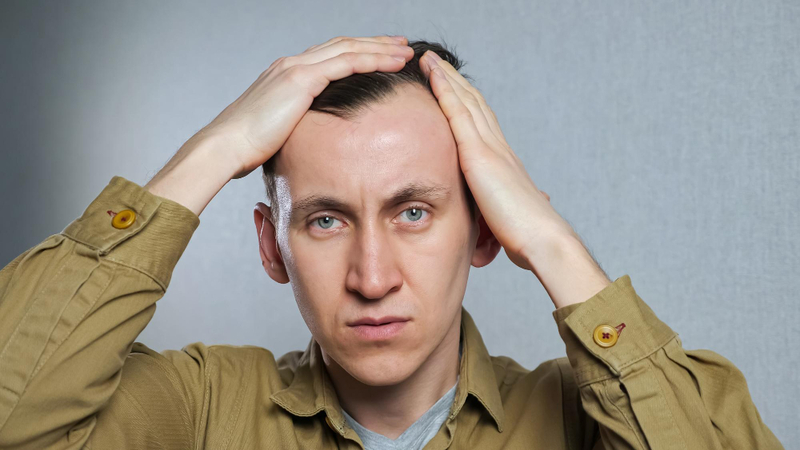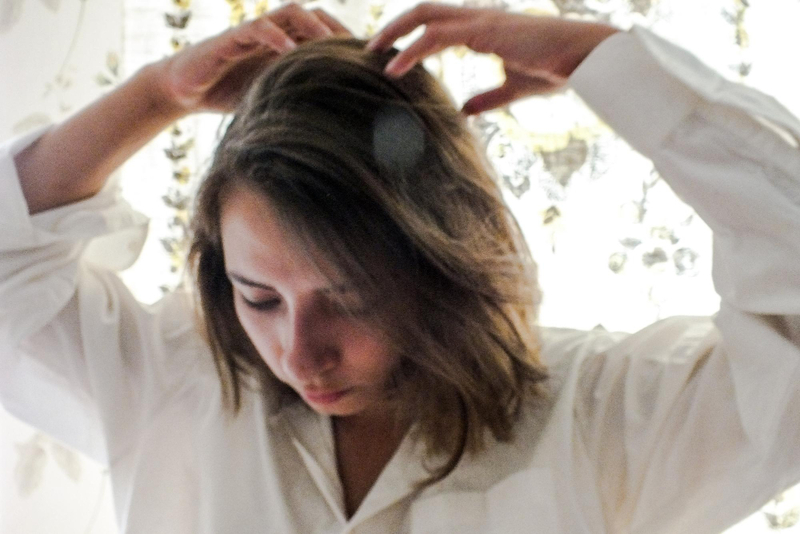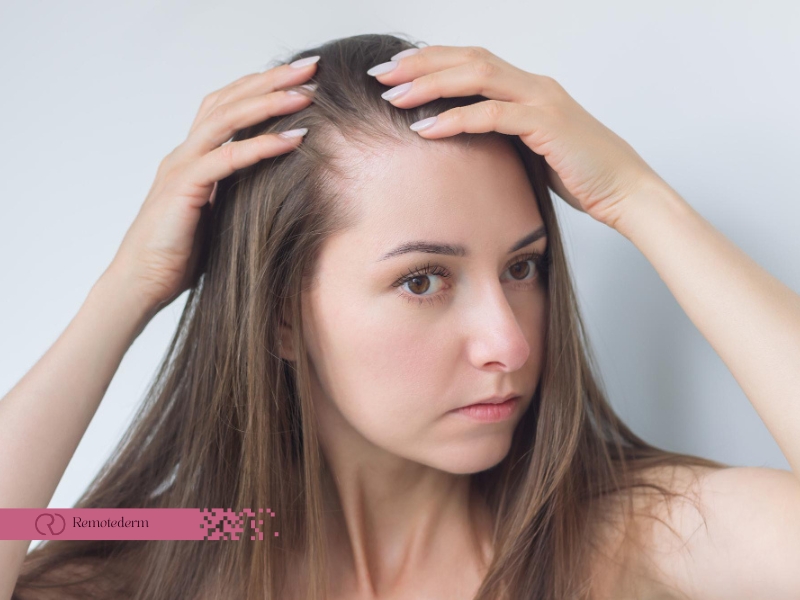Thinning hair is a common concern for many people, affecting both men and women of all ages. Understanding the causes and finding effective treatments can help manage and even reverse this condition. This article will explore various thinning hair treatments available in Canada, providing you with valuable information to make informed decisions about your hair care.
Causes of Thinning Hair
Thinning hair can be caused by a lot of things, and these include:
- Genes: This means that if your parents or grandparents had hair loss, then it’s very likely that you might also have the same problem. The beginning and severity of thinning are mostly dictated by genetic factors.
- Hormonal Imbalance: Hair growth cycle depends on hormones too; therefore, changes like those during pregnancy (postpartum), menopause where estrogen levels drop which makes hairs finer or thyroid disease among others can bring about significant loss. One instance is that as a lady gets to her change of life period (menopause), there is declining production of the female sex hormone which causes more delicate hairs that even become sparser as time goes by.
- Illnesses: A sign of the scalp can be brought about by skin maladies like immune system diseases such as alopecia areata, scalp infections and others. When autoimmune illnesses occur, the body’s immune system attacks the hair follicles making them fall out in large numbers.
- Medication: Some medications used to treat depression, anxiety, cancer, high blood pressure and heart problems may lead to hair loss as a side effect. Chemotherapy leads to rapid hair loss which is common knowledge about this drug; this means that particularly with drugs like these one should expect it to happen swiftly.
- Stress: If physical or emotional stress is the reason, hair follicles can fall out easier when in the resting phase. Significant thinning from major surgeries, accident trauma, or serious diseases may also lead to hair loss.
- Poor Nutrition: Deficiency of vital nutrients like iron, zinc, biotin, essential fatty acids, protein, vitamins A, C, D and E in a diet can weaken hair structure and lead to thinning. A balanced diet is necessary for healthy hair growth.

Thinning Hair in Women
Dynamic changes in hormones often lead to hair thinning among women with the most common being menopausal period. Additionally, pregnancy and delivery are other major contributors. The solutions below can help females with this issue:
Topical Treatments
Often, women’s hair loss is treated with over-the-counter products. Easy access and simplicity of use make these treatments widespread. They may include the following:
- Minoxidil: This is a topical otc drug used for hair growth. It works by increasing blood circulation to the hair follicles when directly applied on the balding area. Although it can help stop hair loss over time, quitting the treatment may reverse the progress which has been made already.
- Essential oils: Some essential oils like lavender, rosemary, peppermint etc., may help promote new hairs if used correctly; they need to be mixed with carrier oils such as jojoba or coconut then applied on the scalp through massage. Regular application might also improve overall scalp health and hair thickness.

Medical Interventions
There are medical methods that can be used in cases more severe than others, including:
- Hormone replacement therapy (HRT): This may prevent falling hair by balancing estrogen and progesterone levels known to cause hair thinning due to hormone imbalance but a professional should manage this treatment for it to be effective concerning risks as well as adverse effects.
- Platelet-Rich Plasma (PRP) Therapy: where few drops of patient’s own blood treated so as to increase platelet concentration are injected back into their scalp thereby activating growth factors within PRP which then promotes growth and thickening of new hairs through stimulating hair follicles to start producing hair again thereby filling those areas without hair.
Thinning Hair in Men
Men typically experience thinning hair due to male pattern baldness, a genetic condition. Other factors include stress and medical conditions. Treatments for thinning hair in men include:
Topical and Oral Treatments
Men have several effective topical and oral treatments available:
- Finasteride: A prescription medication that can reduce hair loss by blocking the hormone responsible for hair loss (DHT).When taking Finasteride orally, it can help slow down hair loss and may even encourage the growth of new hairs in areas affected by male pattern baldness. However, stopping this medication can only be done with the doctor’s express approval. This is because when the drug is discontinued all benefits will stop and hair loss might return.
- Minoxidil: Men can also use minoxidil just like women do. The solution should be applied continuously on the top of the head so as to maintain the desired outcome. Additionally, this drug does not require any prescription for it to be acquired.

Surgical Approaches
For more permanent solutions, surgical options can be considered:
- Hair Transplant: It involves moving hair follicles from one part of the scalp (usually the sides or back) to areas that are going bald or thin. This treatment is incredibly effective, though it takes a while to heal and can be quite expensive.
- Scalp Micropigmentation: This method works by tattooing small dots onto the scalp in order to create the illusion of fullness. Men who wish to shave their heads very closely will find it particularly useful as it enhances density without being invasive.
Common Treatments for Thinning Hair
Thinning hair can be managed through several treatments irrespective of the sex. The following are some effective choices:
Over-the-Counter Interventions
Over-the-Counter (OTC) or non-prescription medications are convenient and can be a great place to start.
- Shampoo plus Conditioner: For healthful tresses, pick products containing biotin, caffeine or ketoconazole. These particular shampoos as well as conditioners will not just work on the wellness of your own scalp but additionally make it strong enough for additional hair growth.
- Dietary Supplements: The growth of hair requires certain minerals such as iron, vitamin D etc., among others; hence these should be included in the diet plan. Before taking any new kind of a dietary supplement then you are advised to get Medical consultation for your safety as the saying goes health is wealth.
Professional Remedies
For those who need more aggressive therapies, there are professional options:
- Hair Loss Dermatologist: Seeking advice from a dermatologist with expertise in hair loss can yield tailored treatment recommendations. There are many options available for selecting a reputable hair loss dermatologist in Canada who can provide cutting edge treatments and expert advice. RemoteDerm is an advanced tele-dermatology platform that allows people in Canada to see licensed dermatologists without leaving home.
- Laser therapy: Low level laser therapy (LLLT) activates hair follicles to grow new hairs. Treatment can be done either at home using devices or in a clinic setting; for best results consistent use is required over time.
- Mesotherapy: This procedure involves injecting nutrients such as vitamins, enzymes or drugs directly into your scalp where they will act on nourishing follicles while also improving blood circulation thus promoting healthier strands.
Natural Treatments
For some people natural remedies may also be beneficial:
- Herbal Supplements: These supplements may aid in hair health by reducing hair follicle miniaturization and increasing circulation such as saw palmetto or ginseng. They should be used carefully, with advice from a professional if possible.
- Scalp Massage: You can add frequent scalp massages to your hair care routine which will improve blood flow to the hair follicles thereby stimulating new growth. The benefits of the massage can be enhanced by using essential oils.

Final Thoughts
Experiencing hair loss can be very overwhelming. However, there are many ways to deal with and even reverse this condition. It doesn’t matter if you have thinning hair as a man or woman. There is a solution that will work for you. You can go for OTC products, professional treatments, or even change your lifestyle; the options are unlimited. Additionally, consulting with Canadian dermatologists that specialize in treating hair loss could be the best decision ever made.
FAQs
Can diet alone prevent hair thinning?
Even though having a healthy diet is important for the health of one’s hair, it may not entirely stop thinning. This is why it might be best to combine other treatments with dieting.
Is laser treatment safe for all hair types?
For the most part, laser treatment is safe for all types of hair, However, it is important to make sure that you consult with an expert so as to be sure if it is appropriate for your specific case or not.
How long does it take for Minoxidil to take effect?
When it comes to noticeable results, Minoxidil usually takes around three to six months. Regular application is essential in seeing any changes happen with time.
Are there any side effects with PRP therapy?
Generally speaking PRP treatments are safe but there can be mild side effects such as scalp tenderness or swelling which may occur in certain individuals. In order to reduce chances of risk it is advised that you consult a specialist about them beforehand.
